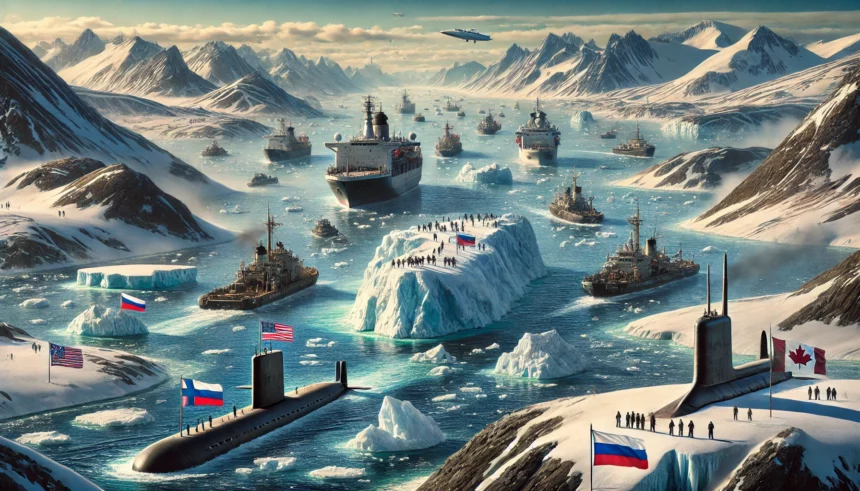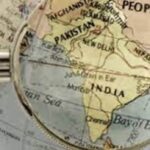The article discusses the prospects of Canada emerging as an important maritime force should the Arctic ice continue melting and opening up the Northwest Passage. This would drastically reduce the length of time it takes for transportation between Europe and Asia,
Canada has laid claim to the Northwest Passage since the Second World War, while the United States views it as international waters. As the ice continues to melt and it becomes easier to navigate through the passage, the United States may change its stance and side with Canada to deter other countries, especially China and Russia, from passing through this route. The potential unfreezing of the Arctic region is able to produce significant geopolitical changes in the near future.
Key facts:
Canada’s Geopolitical Benefit: If the Arctic ice melts because of climatic change, then the opening of the Northwest Passage presents a golden opportunity for dramatically shortening shipping times between Europe and Asia. Consequently, this would transform Canada into a key economic port and maritime power. Canada has claimed sovereignty over the passage for quite some time. However, this claim was not of much consequence in the past due to its heavy coverage by ice.
Melting Arctic ice is an opportunity for commercial development in Canada’s wasteland territories to the north. These areas can now become very valuable real estate that will dramatically improve Canada’s economic future. Most Canadians live below the 55th parallel. As such, its development would not only bring attention but also a shift of resources to the sparsely populated northern territories as well.
The article has pointed out that economic development in the Arctic would benefit indigenous peoples, more specifically the Inuit, who have always been challenged economically and faced discrimination. Economic growth potential in the Arctic can bring substantial wealth to the people living in this area.
Geopolitical rivalry: The strategic and commercial nature of the Arctic attracts major world powers, including Russia, China, and the United States. Russia has been very active in the region as the influential force in the Arctic; China, though less pressuring, shows interest as the “near-Arctic” country. As remarked in the article, there are prospects for cooperation between China and Russia over shipping routes that might dramatically shift the balance of power.
The article reviews past disputes between Canada and the U.S. over who owns the Northwest Passage. The United States has always claimed the passage as international waters, while Canada claims them as their own. The author criticizes former U.S. Secretary of State Mike Pompeo for claiming a ” feud” over the waters, saying it had been largely dormant until recent times due to massive ice blockage in the channel.
With the route becoming navigable, it infers that the U.S. has to review its position relating to the passage. When the passage is declared to be international, there will be a total opening to China, Russia, and others. In tactics aimed at aligning with Canada’s claim for sovereignty, the United States would find itself in a strategic position where it would seek to have control over the route and, in effect, diminish the influence of its competitors, especially China and Russia.
The melting Arctic ice reveals immense economic opportunities, first of all to Canada, while the situation is raising geopolitical competition among the world’s leading powers. The Northwest Passage can become one of the main navigational routes, but the question of its ownership remains highly debatable, particularly due to Canada’s claims opposed by the USA. Evidently, the change in the accessibility of the region will alter substantially the dynamics of international relations in the Arctic, making Canada one of the major players.
Read the full article here.







